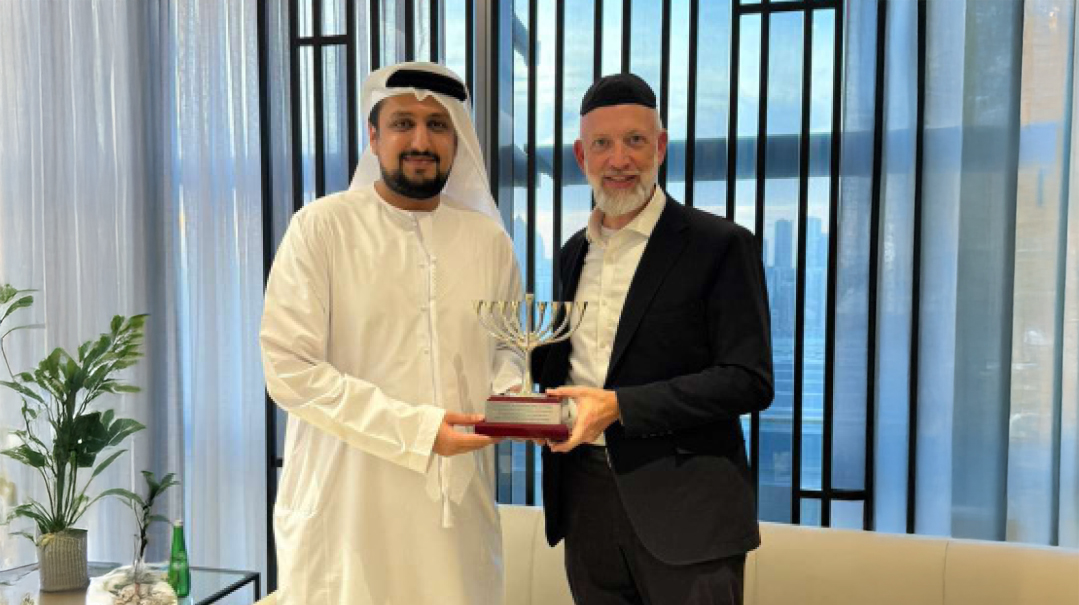Got Grit?

Lately, I’ve been all over the idea of grit. My high-schooler needs to research sources for a project on presidential campaigns? Good, it builds perseverance. My son’s rebbi insists my son say the Gemara more clearly in class? Great, he’ll learn persistence. My kids want to take piano lessons? You got it, it increases diligence and responsibility. My editor asks me to rework my carefully crafted article? I’m on it, because toiling to refine my writing only makes it stronger.
The term “grit” usually refers to tenacity, resolve, and strength of character, but has been refined in recent years due to the research of Angela Lee Duckworth, a professor of psychology at the University of Pennsylvania who was thrown into the spotlight when she delivered a 2013 TED talk titled “Grit: The Power of Passion and Perseverance.” (It has since been viewed over 15.5 million times, and she published a New York Times best-seller under the same title.) She told of leaving a high-powered consulting job to teach math in the New York public schools. Duckworth realized that successful students had more than IQ going for them; they also had grit. Her research later confirmed that grit — more than talent, IQ, or social intelligence — is one of the most significant predictors of success.
Duckworth defines grit as “perseverance and passion for long-term goals.” Gritty people value effort over talent, maintain their motivation and determination despite setbacks, understand that their grit can grow, and invest consistent effort over the long run. As Duckworth says, “Enthusiasm is common. Endurance is rare.”
All this highlights a common concern among educators and parents today: that our kids have gotten “soft.”
With young kids, it’s the worry that helicopter parenting makes children anxious and makes them less able to weather difficulties and failures in life. It’s the “everybody gets a trophy” trend at soccer games that causes many parents concern about their children properly developing an aptitude for working hard to achieve goals.
With young adults, it’s universities needing to provide resiliency training on campus, with professors citing emotional fragility as the main factor in their resistance to giving low grades for poor performance.
With young adults entering the workforce, it’s managers struggling with millennials who need continuous positive feedback or who are quitting their jobs in search for the next best thing.
Much has been written about why kids today lack grit and how parents and teachers can foster it. Solutions include encouraging personal responsibility and problem solving, promoting a growth mindset, and enabling children to appreciate failure as a learning opportunity. But how can we adapt our understanding of grit to fit the specific framework of the frum community? In what ways do children in our particular population struggle with grit, and how can we help them get grittier?
Today’s generation, frum or not, lives in a world of instant gratification, comfort, and convenience. Privileges are viewed as rights and luxuries are seen as necessities. Our children, in general, are used to living with more, with everything at their fingertips in sound-bite time. If everything comes to me so easy, there’s really no reason to work so hard.
It is therefore crucial for our schools to challenge children to push themselves out of their comfort zones and work to meet long-term goals. Whether it be learning to make a siyum, pushing through a long seder, or working with a partner to meet deadlines for a big project, such activities develop lifelong skills in children. And there is no more essential component to perseverance than passion. Classrooms for both limudei kodesh and limudei chol should be places where students discover their passions, where students feel safe to take risks, experience failure, discover what makes them curious, set goals and achieve personal success.
Duckworth emphasizes the importance of providing opportunities for young people to find their passion, and it begins with identifying interests. Providing a variety of kosher activities for our youth is essential for helping them discover their interests and build their grit muscles. A child may find, for example, that playing an instrument speaks to her. The daily practice — sticking with a task and tasting achievement — teaches her to never give up, invest steady effort, and appreciate the fruits of her labors. Persevering at something one is passionate about builds confidence, self-worth, pride, and a heightened sense of individuality.
Today’s parents want to give their children every opportunity to succeed — but also protect them from failure, disappointment, discomfort, and pain. We struggle to let them suffer the natural consequences of their mistakes. We want to solve their problems and curate their environments.
Frum parents face an additional challenge: We are often afraid. Afraid of failure, afraid of being judged, and afraid of handling our children’s messy emotions, which may not be what we expect from good frum girls and boys. We’re also, quite possibly, afraid our children will, chas v’shalom, go off the path. As a result, we may overcompensate and protect them however we can from difficulty and sacrifice, which in our mind may lead them to leaving the fold. Because if our children feel frum life is burdensome and overly restrictive, the free-for-all world of nonobservance beckons from just outside.
This type of frum overcompensation can perhaps be compared to helicopter parenting — what we do as parents do to shield our children from failure and harm, whether physical or emotional. Helicopter parenting has been fingered as a culprit in hindering children from developing grit. Children cushioned from every fall, metaphorical and literal, end up lacking competence, resilience, and confidence. Never having learned to manage themselves, they struggle to take personal responsibility and overcome obstacles on their own. If Mommy always intervenes to save the day, fix mistakes, and improve what I’m doing, I learn only that I am incapable, mistakes are bad, and perfection is good.
We frum parents need to internalize the reality that perfection is not only not a requirement, it is not even a possibility, and we create anxiety for everyone when we try to attain it. We need to accept stumbles and falls as required elements for further growth. We need to embrace each child’s individuality and provide outlets for self-actualization. We need to do right by our children and stop worrying about what everyone will think. We need to stop feeling shame about failure and realize that it is an essential component of the human experience. We need to stop obsessing over what we need to do to get our kids good shidduchim and focus on developing authentic selves — both our own and our children’s.
While fear of children going off the derech may not manifest itself directly in our parenting, we do tend to guard our children so that their comfort level with their Yiddishkeit is not at risk in any way. Our sons learn so hard during zeman, so when they’re home, we don’t burden then with helping out around the house. Our daughters sacrifice so much to dress b’tzniyus, so to make it as easy as possible, we spend whatever it takes for them to feel pride in dressing according to halachah. Our bochurim, who are busy developing grit in the beis medrash but don’t have much time to earn money, have Tatty’s credit card, with Tatty footing the bill each month, which they expect will continue into marriage.
While there may be good and pragmatic reasons for each of these situations, we must be aware that they may potentially foster a sense of entitlement that can last into adulthood. Ultimately, we want our children to be responsible, self-sufficient, motivated, and hardworking, because that’s what they need in life. But we parents have a formative part to play in cultivating those traits in the training ground of childhood within the unique framework of our community.
Abundance, ease, and lack of sacrifice have weakened grit not only in the material realm in this generation; those same factors affect our children’s spiritual experience. Being frum is easy these days, particularly in densely populated Jewish communities. Everything is kosher, everything is available, and everybody is doing it. The external trappings of being frum require little sacrifice, but what about the internal reality of being a frum Jew? Does closeness to Hashem come just as easy, or am I meant to be doing some kind of work to achieve it? When easily achieved externals become the focus of what it means to be frum, the nuances of investing in spiritual growth are lost.
I am left thinking about the people I know who grew up in small communities with few frum resources, where nothing was taken for granted and everything was appreciated; or who, due to various life circumstances, forged their own steadfast path in their Yiddishkeit. I also think about those who experienced unique hardships but came out stronger in their faith and belief. These people’s sacrifices paid off and their enthusiasm endured. As adults, their Judaism is fueled by a special passion and motivation. They see themselves on continuous journeys of growth in avodas Hashem; they are highly individualistic and less prone to the pressures of keeping up with the Cohens.
I want my kids to have whatever they need and want to live a content frum lifestyle, and I want it for myself, too. But what can I take from the nagging thoughts that maybe having less is more? What, really, inspires people to be gritty — about anything, and especially about their Yiddishkeit?
Oops! We could not locate your form.













